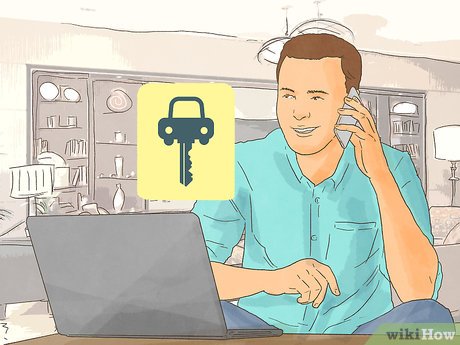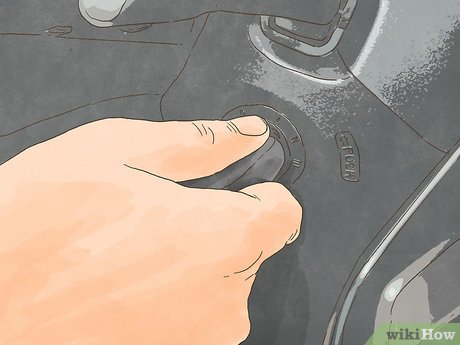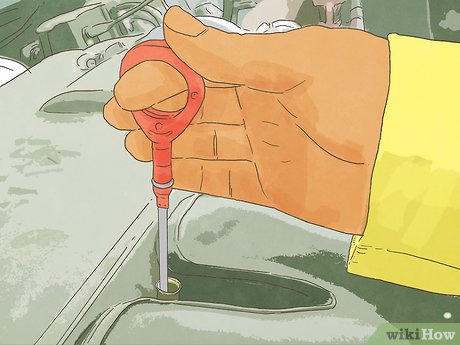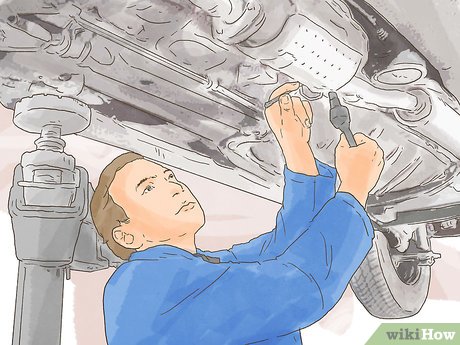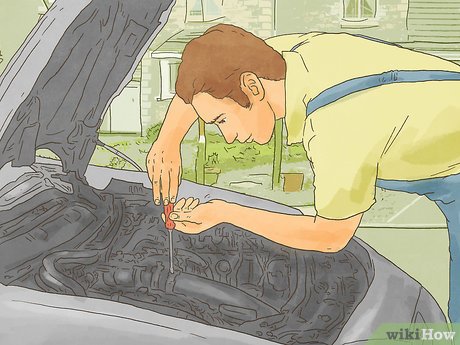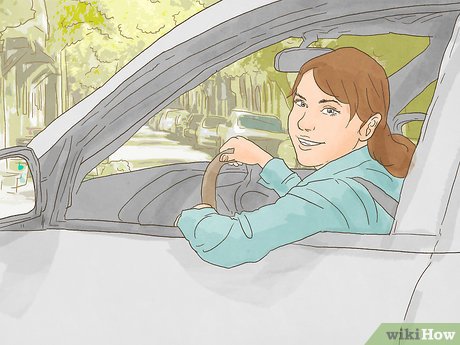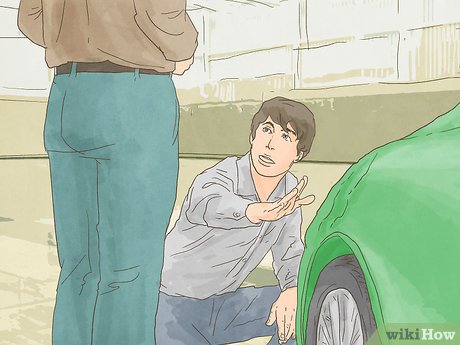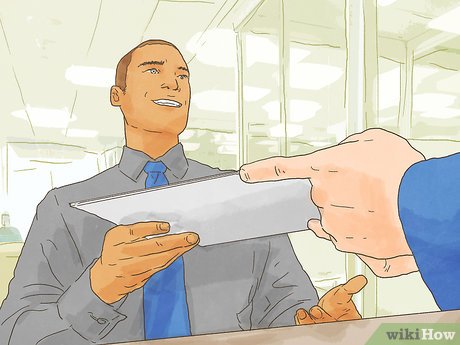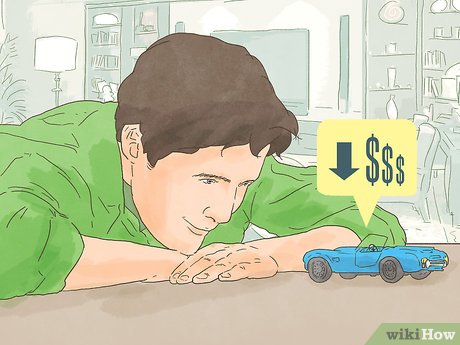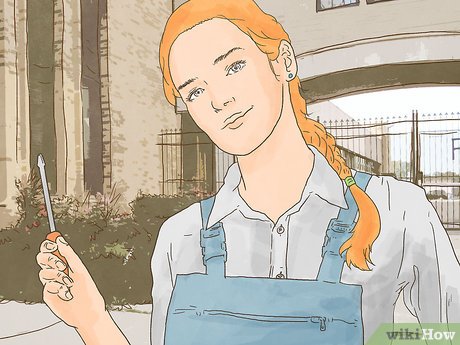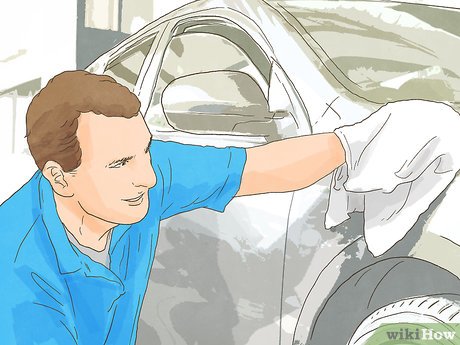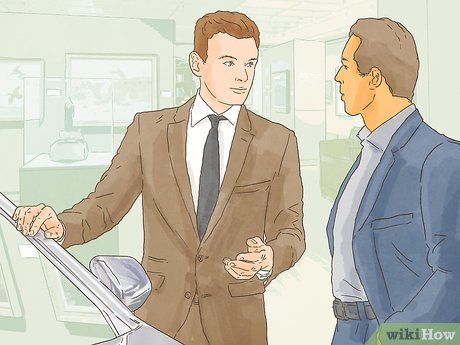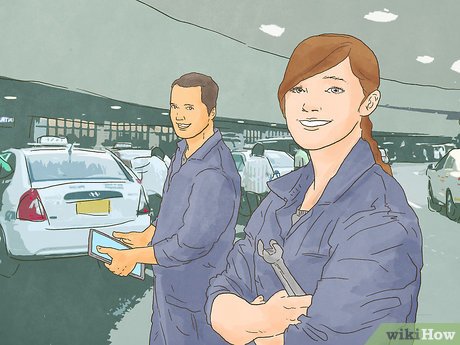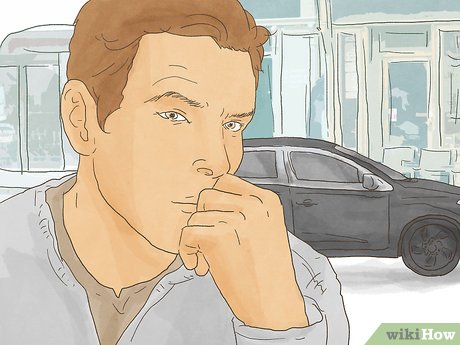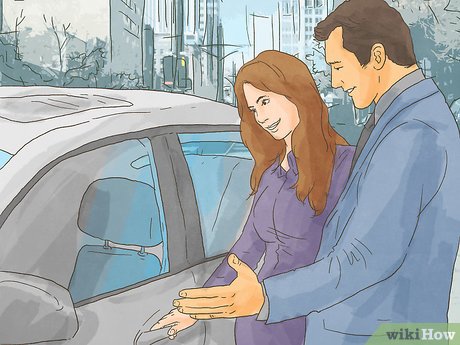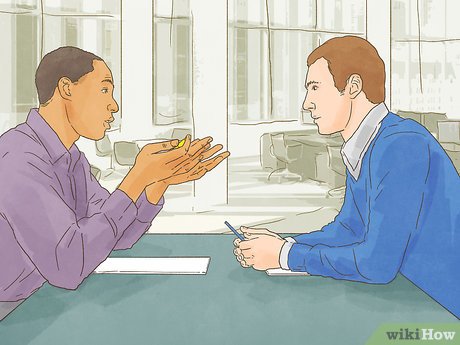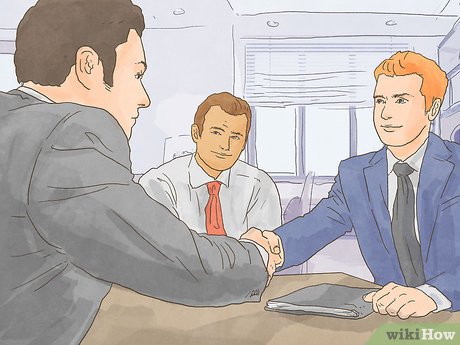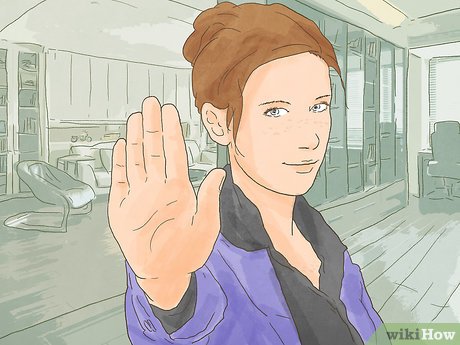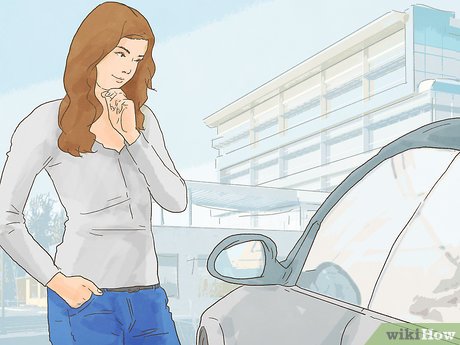How to Buy and Sell Cars for Profit
Method 1 of 3:
Buying Cars Effectively
-
 Search car auctions, classifieds, eBay, and Craigslist for cars sold by their owner. You will rarely be able to buy a car from a dealer and flip it for a profit, as these cars are generally sold at their highest price. Random people, however, don't have to pay employees or rent on a lot, and can afford to let go of their used car for much less than a dealer can. Confine your search to these sellers for the best results.
Search car auctions, classifieds, eBay, and Craigslist for cars sold by their owner. You will rarely be able to buy a car from a dealer and flip it for a profit, as these cars are generally sold at their highest price. Random people, however, don't have to pay employees or rent on a lot, and can afford to let go of their used car for much less than a dealer can. Confine your search to these sellers for the best results.- Don't be immediately turned off by "salvage titles," which are often some of the best deals on the market. Be sure, however, to ask what happened to earn the title. A broken window is a lot different than a cracked axle, but both could cause the car to be considered salvage.[2]
- Carfax and other title check sites are good ways to get a cheap vehicle history for bigger buys.
-
 Use online appraisal sites to get a good idea of the base price. Places like Edmunds and Kelly Blue Book let you input the car's make, model, year, and condition and see the general price. This is often a good baseline for negotiation, and can be used to effectively bargain if someone is grossly overestimating the price. These sites usually have ratings too, letting you see if the car has common issues to look for or has a record of reliability. Some tips to make the most of these sites include:
Use online appraisal sites to get a good idea of the base price. Places like Edmunds and Kelly Blue Book let you input the car's make, model, year, and condition and see the general price. This is often a good baseline for negotiation, and can be used to effectively bargain if someone is grossly overestimating the price. These sites usually have ratings too, letting you see if the car has common issues to look for or has a record of reliability. Some tips to make the most of these sites include:- Note the "dealer's price." You can usually bargain down to the price they expect from a dealership, because there will be much less paperwork for both of you.
- Check several sites at once, and always assume the car will be in worse shape than it is -- most people will try and sell at the highest price they can find online, and will err towards a better condition on their advertisement.
-
 Always start the car from a cold engine. Be wary of any cars you come across that are already on and running. It takes the most energy and momentum to get a cold car started, and you can often hear or feel any issues with a bad motor as it lugs to a start. Be on the lookout for:
Always start the car from a cold engine. Be wary of any cars you come across that are already on and running. It takes the most energy and momentum to get a cold car started, and you can often hear or feel any issues with a bad motor as it lugs to a start. Be on the lookout for:- Cars that don't start easily or smoothly.
- Loud noises or grinding sounds in the engine.
- Ticking, whining, or shaking as the car starts.
-
 Check the oil levels and oil color. As you do, ask about the car's history, starting with its last oil change. The lighter the oil, the better, and it shouldn't ever be dark brown or sludge-like, especially if it has been changed in the past six months. If you see any water or solid bits (like metal) in the oil, walk away -- repairs won't be cheap.
Check the oil levels and oil color. As you do, ask about the car's history, starting with its last oil change. The lighter the oil, the better, and it shouldn't ever be dark brown or sludge-like, especially if it has been changed in the past six months. If you see any water or solid bits (like metal) in the oil, walk away -- repairs won't be cheap.- Have the seller rev the engine 5-6 times and watch the exhaust. If produces black or thick smoke you should walk away, especially if the oil levels are also low.[3]
-
 Search under the car for leaks once it's been running a while. A little water is to be expected. But oil or radiator fluid is a big no-no, and the car likely shouldn't be bought. Another good way to check this is to have someone rev the engine with the radiator cap off. If you see air bubbles in the radiator when the car revs, walk off -- the head gasket is likely blown.
Search under the car for leaks once it's been running a while. A little water is to be expected. But oil or radiator fluid is a big no-no, and the car likely shouldn't be bought. Another good way to check this is to have someone rev the engine with the radiator cap off. If you see air bubbles in the radiator when the car revs, walk off -- the head gasket is likely blown.- Is the engine temperature high? If so, and there is hot water leaking from the car (not fluid or oil!), then you might be in for a bargain. This could just be a leaky house causing the overheating, meaning you can cheaply fix an expensive-seeming problem.[4]
-
 Pop the hood to listen and look at the engine. There shouldn't be loud ticking noises or gurgling, and it's pretty obvious when something doesn't sound quite right. Have someone rev the engine in neutral and watch to make sure it still sounds good as you watch for any issues. Turn the car off and check the belts and hoses, looking for corrosion, rust, or heavy wear. While 1-2 belts and hoses are easy to fix, a complete overhaul could cut away any profits you hoped to make.[5]
Pop the hood to listen and look at the engine. There shouldn't be loud ticking noises or gurgling, and it's pretty obvious when something doesn't sound quite right. Have someone rev the engine in neutral and watch to make sure it still sounds good as you watch for any issues. Turn the car off and check the belts and hoses, looking for corrosion, rust, or heavy wear. While 1-2 belts and hoses are easy to fix, a complete overhaul could cut away any profits you hoped to make.[5] -
 Drive the car before buying whenever possible. If you're a true bargain hunter with some mechanical skills, you might buy a non-working car cheaply if you believe you can get it running. But in all other cases, you want to take the car for a spin. Test a variety of speeds and variations, ideally testing it in both a neighborhood and on a highway or road where you can get the speed up safely. As you do, pay careful attention to:
Drive the car before buying whenever possible. If you're a true bargain hunter with some mechanical skills, you might buy a non-working car cheaply if you believe you can get it running. But in all other cases, you want to take the car for a spin. Test a variety of speeds and variations, ideally testing it in both a neighborhood and on a highway or road where you can get the speed up safely. As you do, pay careful attention to:- Steering: is it smooth and responsive?
- Braking: Does it stop the car quickly, especially in quick-stop situations? Most importantly, does the car stop in a straight line?
- Transmission: Does it shift smoothly? On automatic cars, you should be able to get into drive and reverse in less than a second and a half. Any longer delay could be a bad sign.
- Electronics and Features: Do the lights, windows, and AC work? Is the odometer still running or is it stuck (and do they know how long ago it stopped running, if so?).[6]
-
 Use any and all perceived defects to drive the price down. This is especially crucial if they didn't mention these deficits in the ad posting. Most people are honest and upfront about issues the car might have, but you should be constantly searching for other issues to use as a negotiating tool. If there are minor to serious issues that they didn't tell you, but you're confident can be fixed cheaply, you can often get serious discounts.
Use any and all perceived defects to drive the price down. This is especially crucial if they didn't mention these deficits in the ad posting. Most people are honest and upfront about issues the car might have, but you should be constantly searching for other issues to use as a negotiating tool. If there are minor to serious issues that they didn't tell you, but you're confident can be fixed cheaply, you can often get serious discounts.- As you're examining the car, show them issues as you find them. Most people trust a calm, thorough buyer if you walk them through your tests and issues, making them more likely to take your word on price.
- Gauge their own car knowledge as well. If they seem lost around an engine, you can use this to your advantage to play up any perceived issues.
-
 Be sure to get the title and copy of the car's registration. If they don't have a title on hand, you should be very wary about buying the car. The title is required to get the car registered, and to subsequently get insurance for the vehicle. If they can't hand over the title, you better be sure the car is worth the hassle of getting it re-titled.
Be sure to get the title and copy of the car's registration. If they don't have a title on hand, you should be very wary about buying the car. The title is required to get the car registered, and to subsequently get insurance for the vehicle. If they can't hand over the title, you better be sure the car is worth the hassle of getting it re-titled.- For more expensive cars, use a site like CarFax to get the title history and avoid any unpleasant surprises.[7]
Method 2 of 3:
Selling Cars at Their Highest Value
-
 Determine your lowest possible price and your target price before putting the car on the market. Use the same appraisal sites you used when buying the car to set a reasonable price, using Craigslist and local ads to find nearby buyers. If you don't care how quickly the car sells, start the price on the high end. If you want it gone quickly, keep it on the lower end and note that you're firm on the price.[8]
Determine your lowest possible price and your target price before putting the car on the market. Use the same appraisal sites you used when buying the car to set a reasonable price, using Craigslist and local ads to find nearby buyers. If you don't care how quickly the car sells, start the price on the high end. If you want it gone quickly, keep it on the lower end and note that you're firm on the price.[8]- Even if you say you're firm on the price, people will still be looking to negotiate.
- The phrase OBO ("or best offer") is used to indicate that you're willing to negotiate on the price, which is a good way to convince people to call you.
- If the car is high value or a rare find, you might be able to make more money at an auction than a direct sale. Know, of course, that all auctions are a bit of a gamble: you might get way more than you hoped, but you could also get far less.
-
 Get the car checked out by a mechanic and fix any issues, as long as they are cheap enough to still resell at a profit. This is why you must set your price point early on. If the cost of the repairs makes the care more expensive than you can sell it for, the repairs are obviously not worth it. However, if you can get a cheap car with relatively cheap fixes, you'll be able to charge more than it cost for the repairs. While buying a car that needs repairs can be a roll of the dice, smart buyers can turn big profits on small issues that the original seller was too lazy to fix.
Get the car checked out by a mechanic and fix any issues, as long as they are cheap enough to still resell at a profit. This is why you must set your price point early on. If the cost of the repairs makes the care more expensive than you can sell it for, the repairs are obviously not worth it. However, if you can get a cheap car with relatively cheap fixes, you'll be able to charge more than it cost for the repairs. While buying a car that needs repairs can be a roll of the dice, smart buyers can turn big profits on small issues that the original seller was too lazy to fix.- Be sure to check online if the car has any common issues or problems. Can you do anything to convince potential buyers the problem has been handled?
- What repairs can you do yourself? Older cars tend to have pages of advice on home repairs online, and more of them are in the range of a home mechanic than you might imagine.[9]
-
 Get the car as clean as you possibly can. A clean car is much easier to sell, especially for a higher price. Furthermore, vacuuming and cleaning the windows costs you nothing, despite potentially making the difference between cash in hand and a missed sale. Be sure to:
Get the car as clean as you possibly can. A clean car is much easier to sell, especially for a higher price. Furthermore, vacuuming and cleaning the windows costs you nothing, despite potentially making the difference between cash in hand and a missed sale. Be sure to:- Wipe down all surfaces with a clean cloth.
- Vacuum all surfaces, including under and around the mats.
- Rinse and wash off the exterior, including hubcaps. For higher-priced cars, consider a coat of wax to give it a clean sheen.[10]
-
 Show any obvious defects to the buyer, and include them in your ad. If they know the problems beforehand and still show up, they can't use them to drive the price down. If they find issues you didn't mention, however, they suddenly have a few bargaining chips. Being honest upfront may seem like it is admitting to a bad sale, but it only brings in buyers who will be serious about the purchase. While you may be able to skate some smaller issues past a buyer without them noticing, people will generally pay more to a seller they find honest and trustworthy.
Show any obvious defects to the buyer, and include them in your ad. If they know the problems beforehand and still show up, they can't use them to drive the price down. If they find issues you didn't mention, however, they suddenly have a few bargaining chips. Being honest upfront may seem like it is admitting to a bad sale, but it only brings in buyers who will be serious about the purchase. While you may be able to skate some smaller issues past a buyer without them noticing, people will generally pay more to a seller they find honest and trustworthy.- Be sure to provide plenty of pictures, especially of problem areas you noted (like a ripped seat). This inspires confidence and can help people stop worrying about potential defects.[11]
-
 Change the oil, radiator fluid, and wiper fluid if necessary to instantly raise the price. Unless these were done recently by the seller, this is a cheap way to clean the car up and raise the price. Be sure to note these services in your ad, as buyers will be happy to hear that they don't have to worry about these little hassles and are generally willing to pay a bit more.
Change the oil, radiator fluid, and wiper fluid if necessary to instantly raise the price. Unless these were done recently by the seller, this is a cheap way to clean the car up and raise the price. Be sure to note these services in your ad, as buyers will be happy to hear that they don't have to worry about these little hassles and are generally willing to pay a bit more.- Be sure to note the registration status as well. If it is almost up, people will have to pay $100 or more in order to re-register it, and they may factor that into their bargaining.
- Be aware of state-specific requirements, like California's smog tests. If you can get this done ahead of time you can usually charge more than the test's cost, as you'll have eliminated the hassle of making them pay for a smog test.
Method 3 of 3:
Maximizing Profits
-
 Keep tabs on what other cars sell for, even if you're not interested in buying them right now. For example, imagine you see a clean 1987 BMW e30 sell for $2,500 at an auction. While this is far too high to buy and sell for a profit, you'll know that a similar car on sale for $1,500 might be a good investment later on. And, when you sell it, you can comfortably keep the price at $2,000 or higher, knowing someone will pay that much.
Keep tabs on what other cars sell for, even if you're not interested in buying them right now. For example, imagine you see a clean 1987 BMW e30 sell for $2,500 at an auction. While this is far too high to buy and sell for a profit, you'll know that a similar car on sale for $1,500 might be a good investment later on. And, when you sell it, you can comfortably keep the price at $2,000 or higher, knowing someone will pay that much.- Watch or check out car auctions and car sale shows to get a good idea of prices on a variety of cars.
- Check into car appraisal sites regularly and watch the newspapers for car sales even when you're not in the market. The more cars and prices you see, the sharper your sales mind will become.
-
 Look for buyers and sellers who want to move quickly with little hassle. If you're working with other people trying to make a profit you're going to both be fighting for every penny. But people who just want a car off of their hands, or buyers who want a car to get them around without hassle, are going to be much easier to negotiate with.
Look for buyers and sellers who want to move quickly with little hassle. If you're working with other people trying to make a profit you're going to both be fighting for every penny. But people who just want a car off of their hands, or buyers who want a car to get them around without hassle, are going to be much easier to negotiate with.- When buying cars, looks for phrases like "getting rid of," "need to make some quick cash," or other indicators that someone wants the car gone, no matter what the price.
- When selling cars, pay attention to those that move quickly or seem excited before they've even seen the car. Be sure to ask why or what they want the car for, as this can clue you into their financial situation. Desperation signals good deals.[12]
-
 Bargain like a shark. Buying and selling cars isn't for the faint of heart. If you want to make any money in this game, you're going to have to learn to negotiate. While everyone has different strategies, the best overarching principle is to be honest with yourself beforehand. Ask yourself two questions -- what do you want to pay for the car, ideally, and what is the maximum you're willing to pay. Start a little lower than the first number, and work your way slowly to the second.
Bargain like a shark. Buying and selling cars isn't for the faint of heart. If you want to make any money in this game, you're going to have to learn to negotiate. While everyone has different strategies, the best overarching principle is to be honest with yourself beforehand. Ask yourself two questions -- what do you want to pay for the car, ideally, and what is the maximum you're willing to pay. Start a little lower than the first number, and work your way slowly to the second.- Be honest with the seller, "I can only buy/sell this car for $1,200 -- can you meet me there?" If they can't, you can walk away.
- Always have the cash on hand, and ask potential buyers to do the same. If you can pay right on the spot, you can often get them to lower their price to save everyone the hassle of meeting again.
- Don't get emotional about this -- you're only buying the car for the money. If they don't meet your pre-planned price, get out.
-
 Bring a friend along, especially if they are knowledgeable about cars. Two heads are better than one, and if you've got a friend who is handy with a wrench it pays dividends to bring them around. Not everyone knows everything about cars, but that doesn't mean you can't still make a profit. Your friend can rev the engine for you, watch the car as you take test drives or inspect the motor, and point out little defects you may miss.
Bring a friend along, especially if they are knowledgeable about cars. Two heads are better than one, and if you've got a friend who is handy with a wrench it pays dividends to bring them around. Not everyone knows everything about cars, but that doesn't mean you can't still make a profit. Your friend can rev the engine for you, watch the car as you take test drives or inspect the motor, and point out little defects you may miss.- In general, it is a good idea to have a friend along for online deals to stay safe.
- Always meet people in a public place.[13]
-
 Feel free to leave cars and come back later for a better price. Unless you are totally confident that a car is a bargain, leave your phone number and have them call you about the sale. Remember that these cars are just there to make money, so don't get too emotionally attached if they sell to someone else while you're playing hardball. If you really want to get good prices, waiting 2-3 days will help your gauge the seriousness of the seller, as well as the overall condition of the car. If it still hasn't sold in a few days, you can almost always ask to cut 10-25% off the price.[14]
Feel free to leave cars and come back later for a better price. Unless you are totally confident that a car is a bargain, leave your phone number and have them call you about the sale. Remember that these cars are just there to make money, so don't get too emotionally attached if they sell to someone else while you're playing hardball. If you really want to get good prices, waiting 2-3 days will help your gauge the seriousness of the seller, as well as the overall condition of the car. If it still hasn't sold in a few days, you can almost always ask to cut 10-25% off the price.[14] -
 Trust your instincts when dealing with buyers and sellers. If a car doesn't feel right or a deal feels shady, there is no shame in walking away. Hundreds of used cars are on the market at any one time, and your goal here is to turn a profit, not take undue risks. If you're wary that someone is taking advantage of you or neglecting the entire story, trust your gut and walk away. There will always be more deals on the road.[15]
Trust your instincts when dealing with buyers and sellers. If a car doesn't feel right or a deal feels shady, there is no shame in walking away. Hundreds of used cars are on the market at any one time, and your goal here is to turn a profit, not take undue risks. If you're wary that someone is taking advantage of you or neglecting the entire story, trust your gut and walk away. There will always be more deals on the road.[15]- Look the seller in the eye and ask them if you're making the right choice buying the car. They should be able to look right back at you and shake your hand.
Share by
Lesley Montoya
Update 24 March 2020
You should read it
- ★ Sony is producing cars, with 33 sensors, this will be the 'most sensitive' car in the world
- ★ Take a ride on Tesla's self-driving car and watch the self-driving Tesla car video on the real road
- ★ The cause of cars burning and timely handling
- ★ Guidance on registration of cars, granting of license plates via the Internet
- ★ The EU aims to bring speed limiting technology to all cars in the near future
